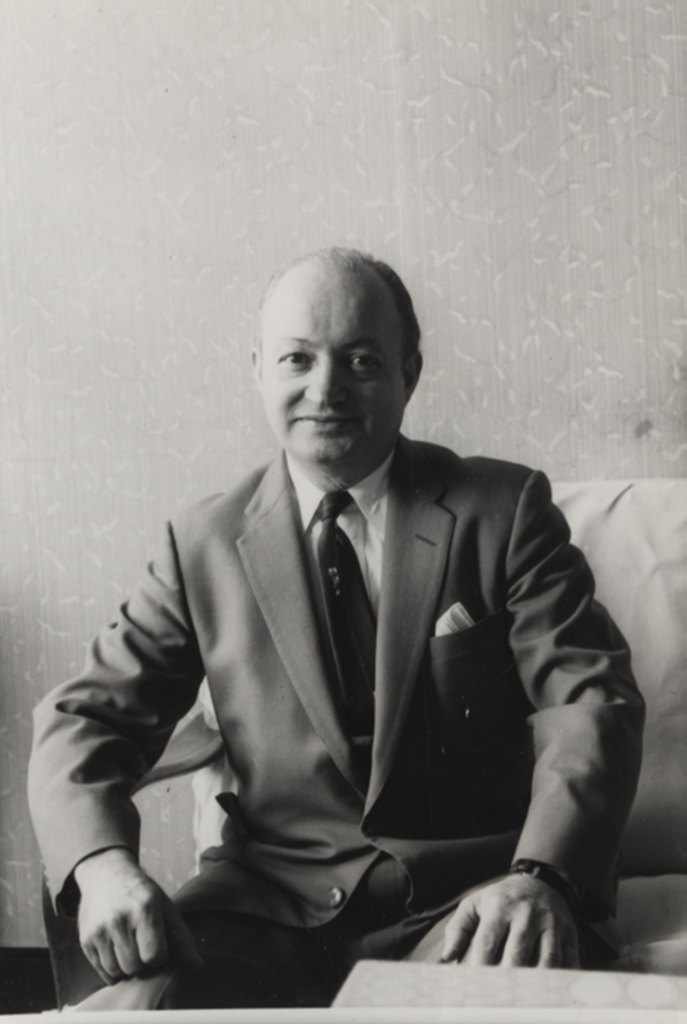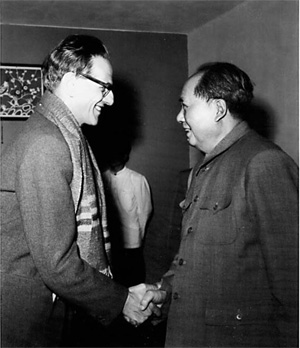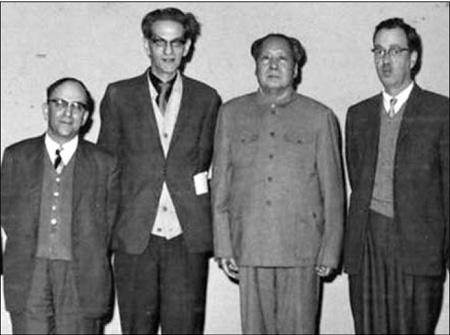<Back to Index>
- Economist Solomon Adler, 1909
- Writer Thomas Alexander Browne, 1826
- Shahanshah of Persia Nāder Shāh Afshār, 1698
PAGE SPONSOR

Solomon Adler (August 6, 1909 — August 4, 1994) was an economist who worked in the U. S. Treasury Department, serving as Treasury representative in China during World War II. He was identified by Whittaker Chambers and Elizabeth Bentley as a Soviet intelligence source and resigned from the Treasury Department in 1950. After several years teaching at Cambridge University in England, he returned to China in the 1950s and was a resident there from the 1960s until his death, working as a translator, economic advisor, and possibly with the Central External Liaison Department, a Chinese intelligence agency.
Solomon Adler was born on 6 August 1909 in Leeds, England. The Adler family was originally from Karelitz, Byelorussia, moving to Leeds in 1900. Solomon Adler was the fifth of ten children; the oldest was Saul Adler, who became a well known Israeli parasitologist. Adler studied economics at Oxford and University College, London. He came to the United States in 1935 to do research. In 1936 he was hired at the Works Progress Administration's National Research Project, but soon moved to the Treasury Department's Division of Monetary Research and Statistics, where he worked with Harry Dexter White for the next several years.
He became a naturalized United States citizen in 1940. In 1941 he was posted to China, where he remained as Treasury representative until 1948. His reports from China to Treasury secretary Henry Morgenthau during the war years were widely circulated and played an important role in shaping American wartime economic policy toward China.
In 1949, Adler was the subject of a Loyalty of Government Employees investigation. He resigned before the case was resolved and returned to Britain, where he taught for several years at Cambridge University. When his American passport expired after three years, he was denaturalized and lost his American citizenship. Adler moved to China by 1960. In addition to his work on economics, Adler was a member of the group translating Mao Zedong's works into English.
When
the United States reestablished diplomatic contacts with China in 1971,
Adler renewed his American citizenship. He died in Beijing on August 4,
1994, two days before his 85th birthday. In 1939, Whittaker Chambers identified Adler to then Assistant Secretary of State Adolf Berle as a member of an underground Communist group in Washington, D.C., the Ware group.
Chambers correctly identified Adler as then serving in the General
Counsel's Office at the Treasury Department, from which, Chambers said,
Adler supplied weekly reports to the American Communist party. In 1945, Elizabeth Bentley identified Adler as a member of the Silvermaster group. A 1948 memo written by Anatoly Gorsky, a former NKVD rezident in Washington D.C., identified Adler as a Soviet agent designated "Sax." This agent, transliterated "Sachs (Saks)" appears in the Venona decrypts supplying information about the Chinese Communist through both Gorsky and American Communist Party head Earl Browder. In addition to his contacts with U.S. espionage groups, while serving as Treasury attache in China in 1944, Adler shared a house with Chinese Communist secret agent Chi Ch'ao-ting and State Department officer John Stewart Service, who was arrested the following year in the Amerasia case. Together with Harry Dexter White, Assistant Secretary of the Treasury, and V. Frank Coe,
Director of the Treasury's Division of Monetary Research, Adler
strongly opposed a gold loan program of $200 million to help the Nationalist Chinese Government control the inflation that took hold in unoccupied China during World War II. Inflation in
China between 1943 and 1945 was more than 1,000% per year, weakening
the Nationalist government in China. This inflation helped the Communists eventually
come to power in China, and in later years White, Coe, and Adler were
accused of having deliberately fostered the Chinese inflation by
obstructing the stabilization loan. According to a Chinese work published in 1983, from at least 1963 on Adler worked for China's Central External Liaison Department, an agency involved in foreign espionage.
Adler's apartment in Beijing was also provided to Adler by the Liaison
Department, which would indicate that the Department was Adler's work unit.

